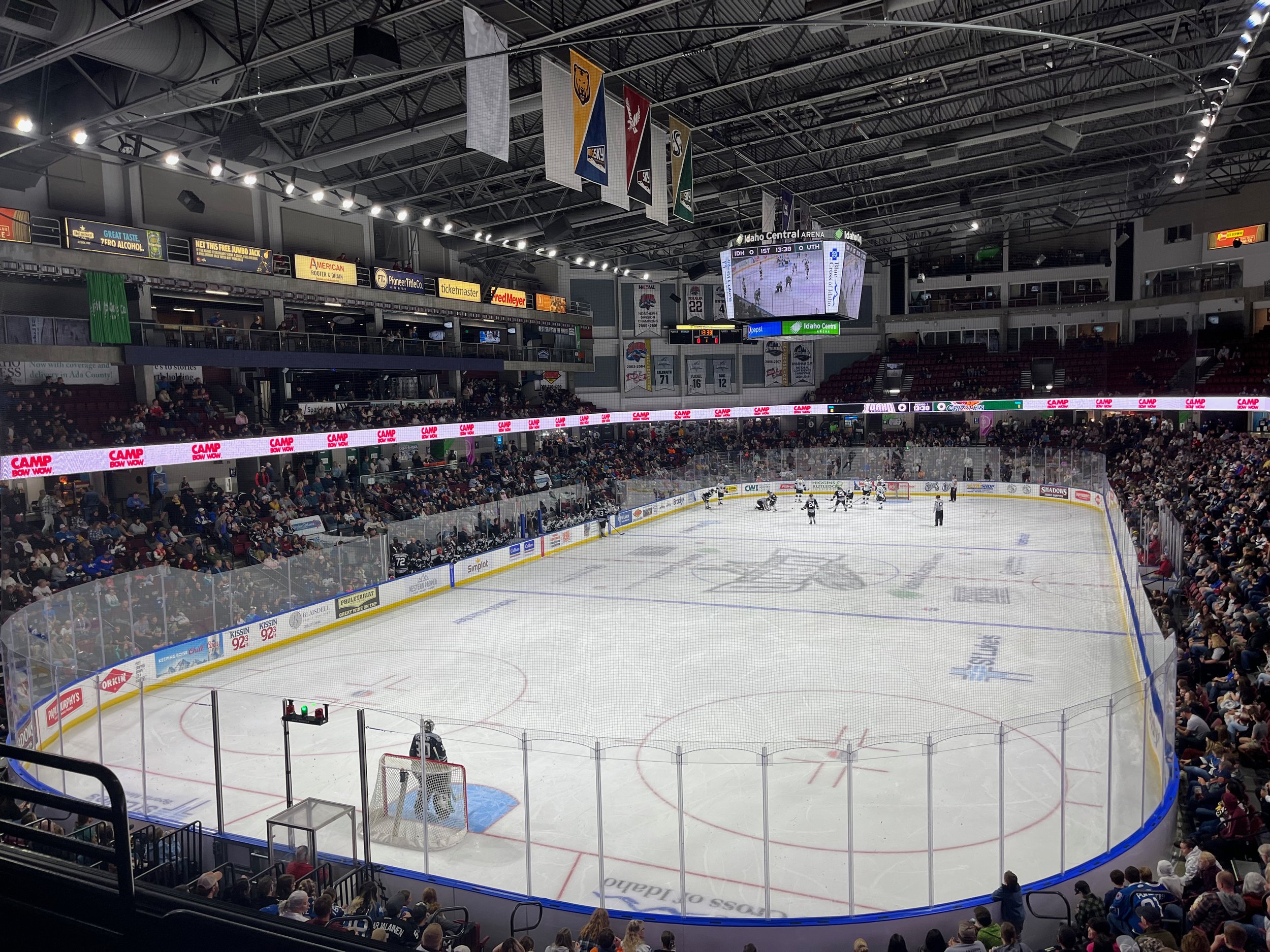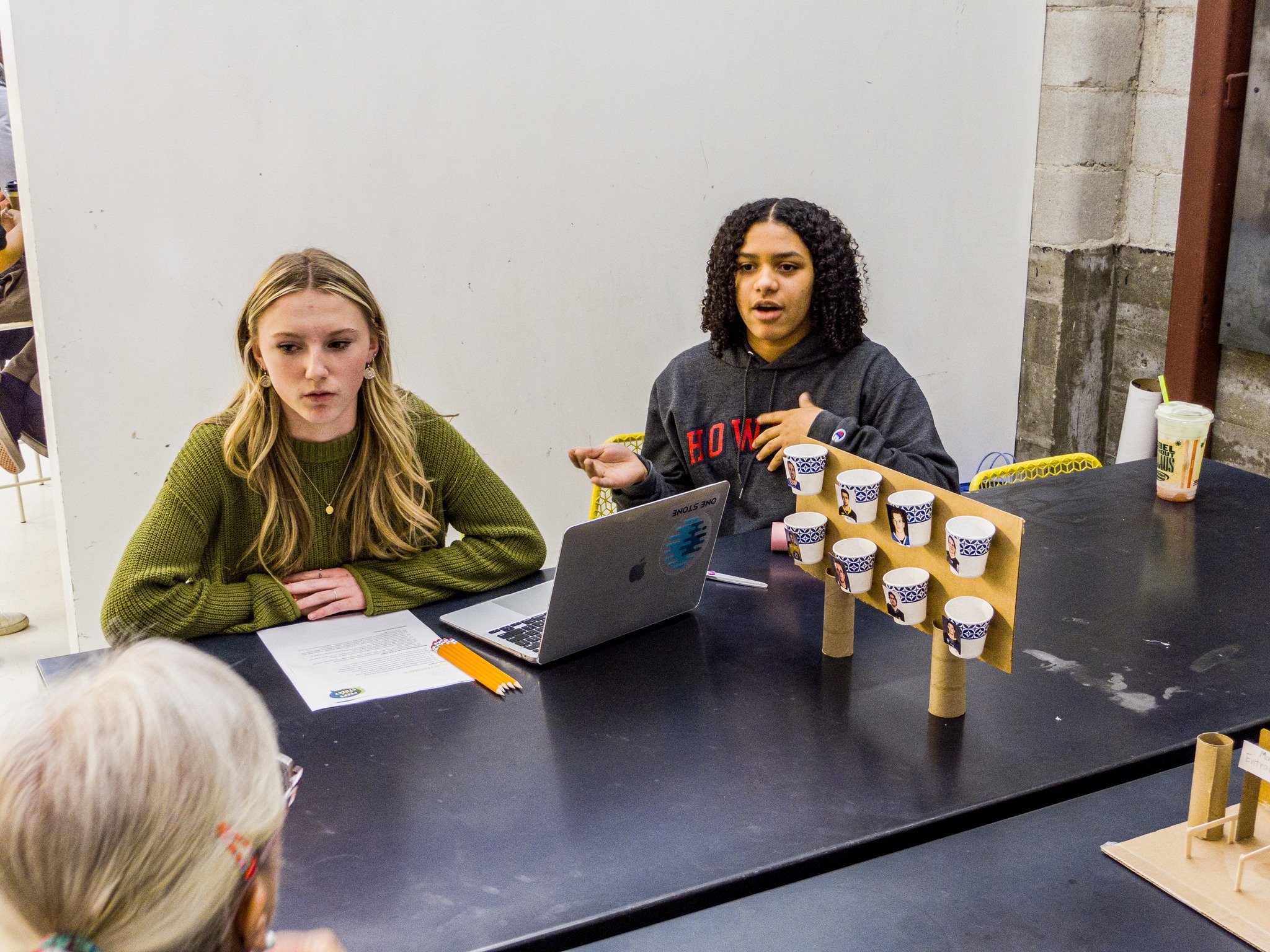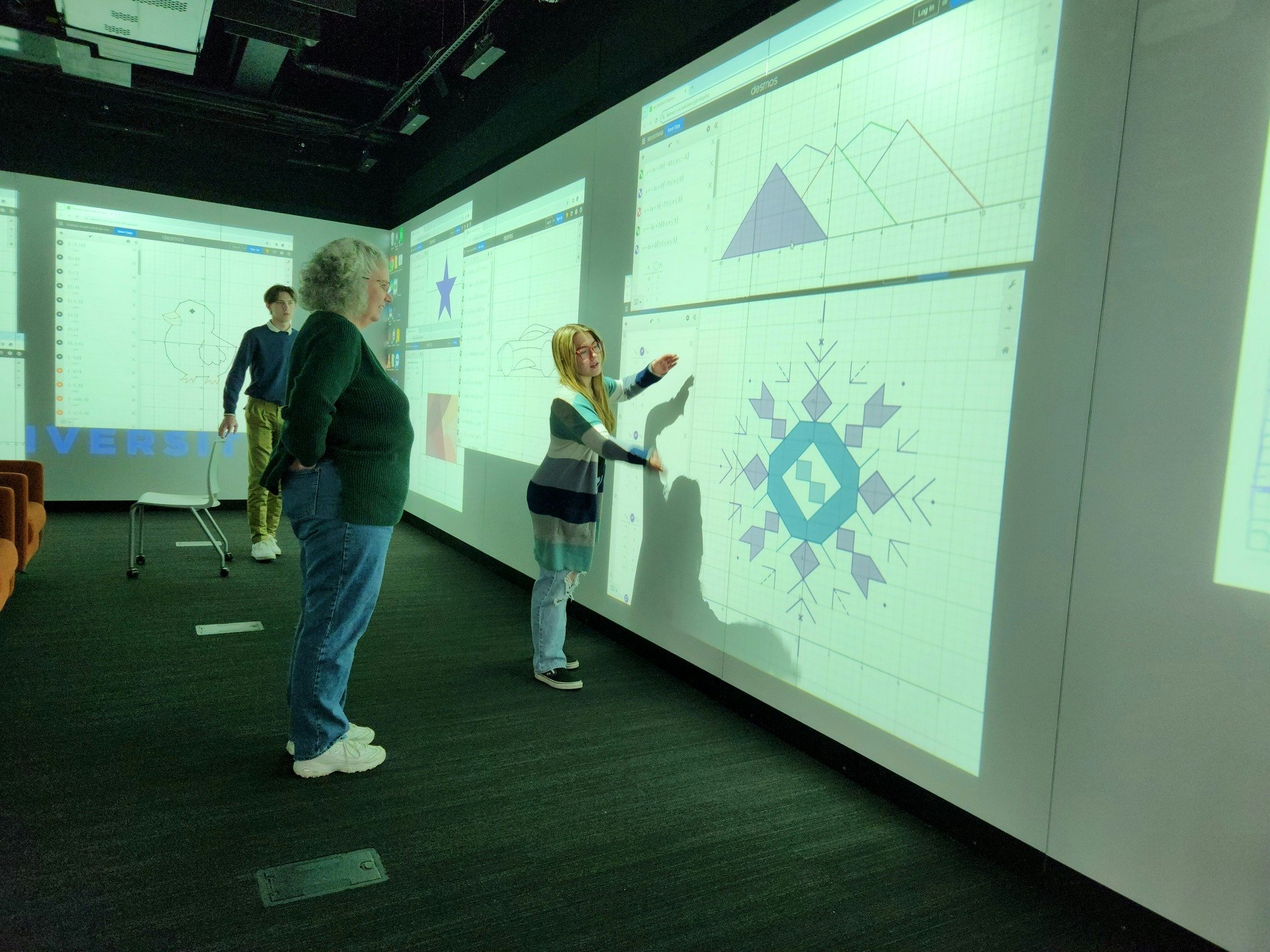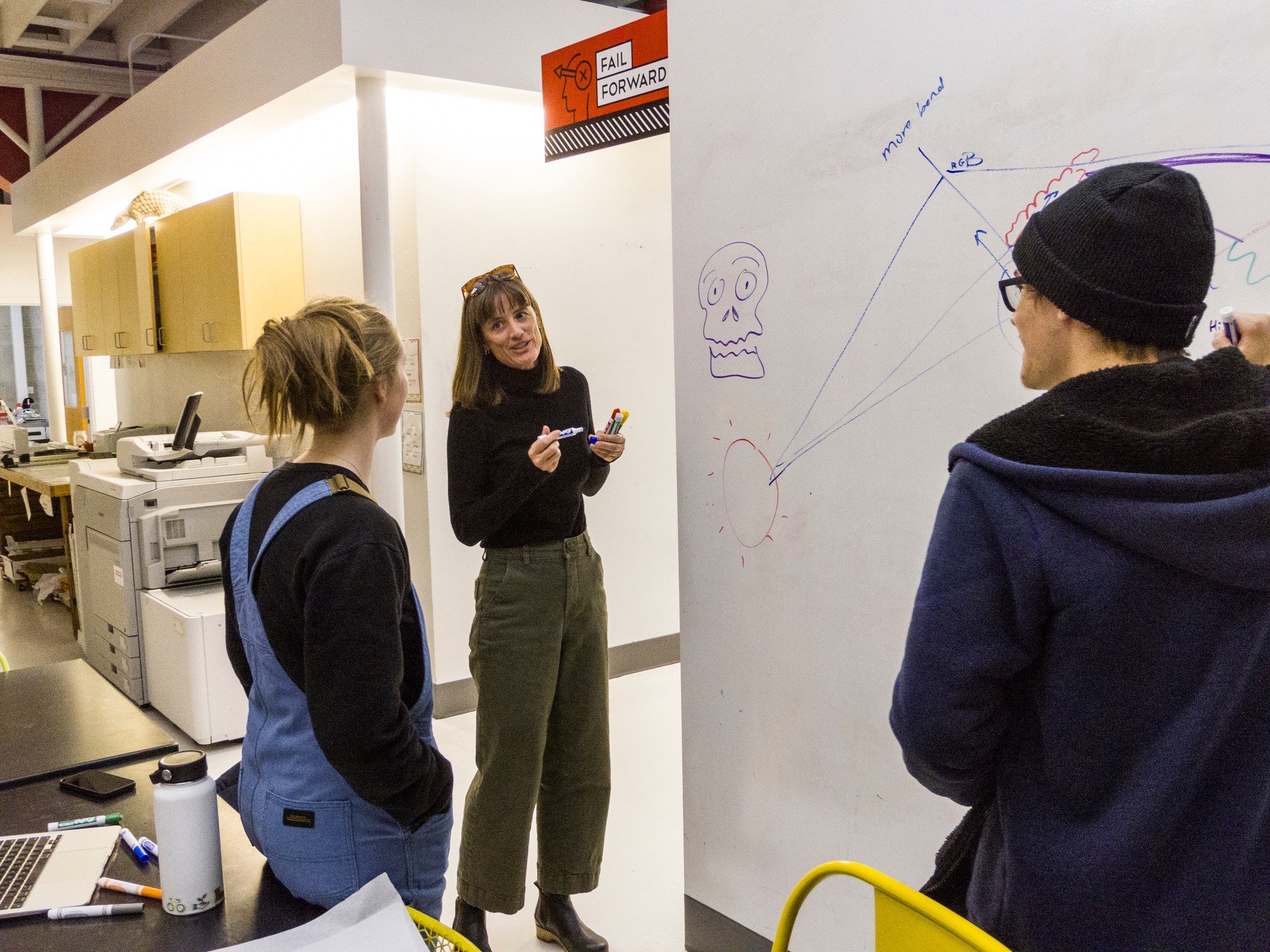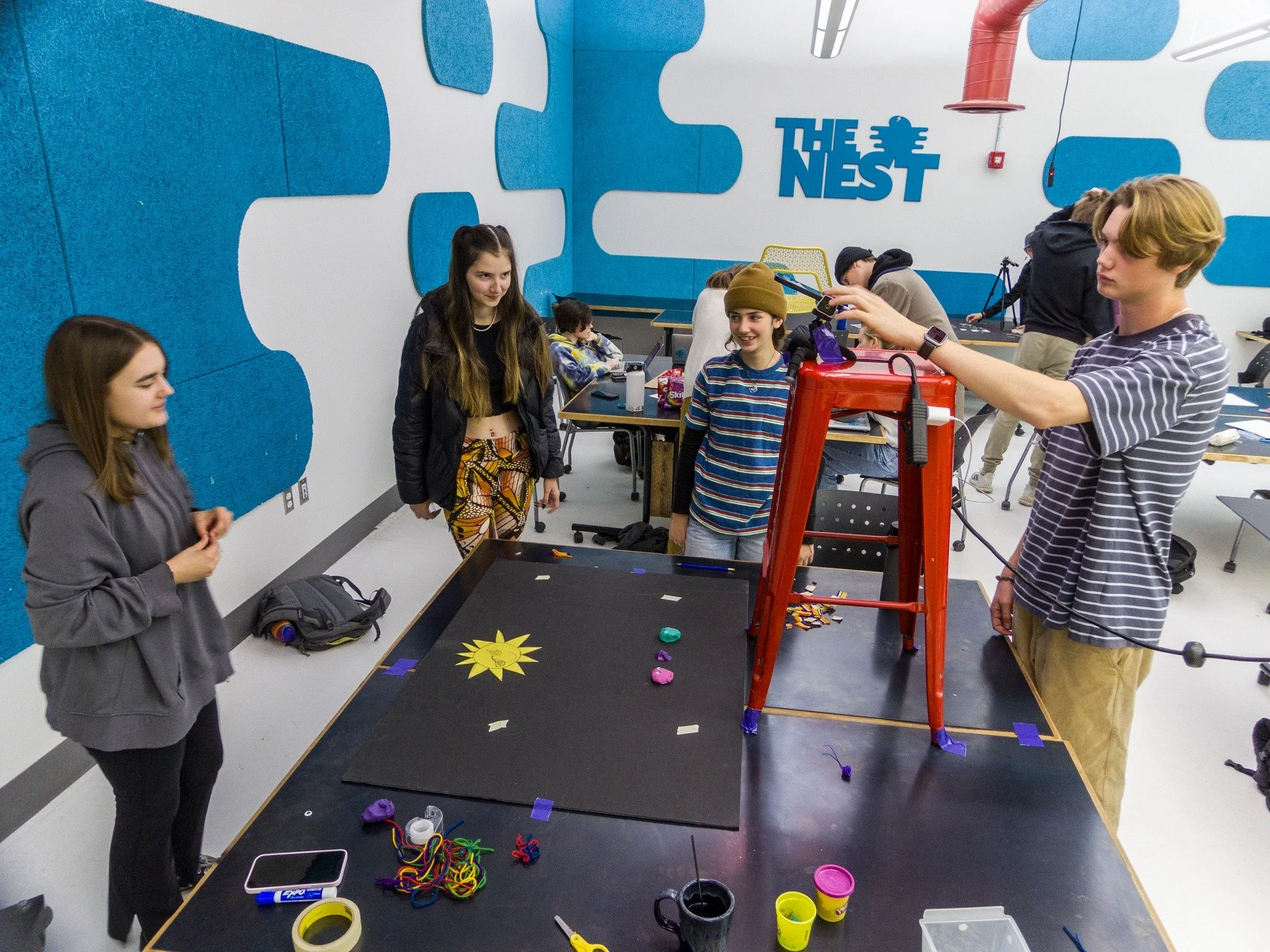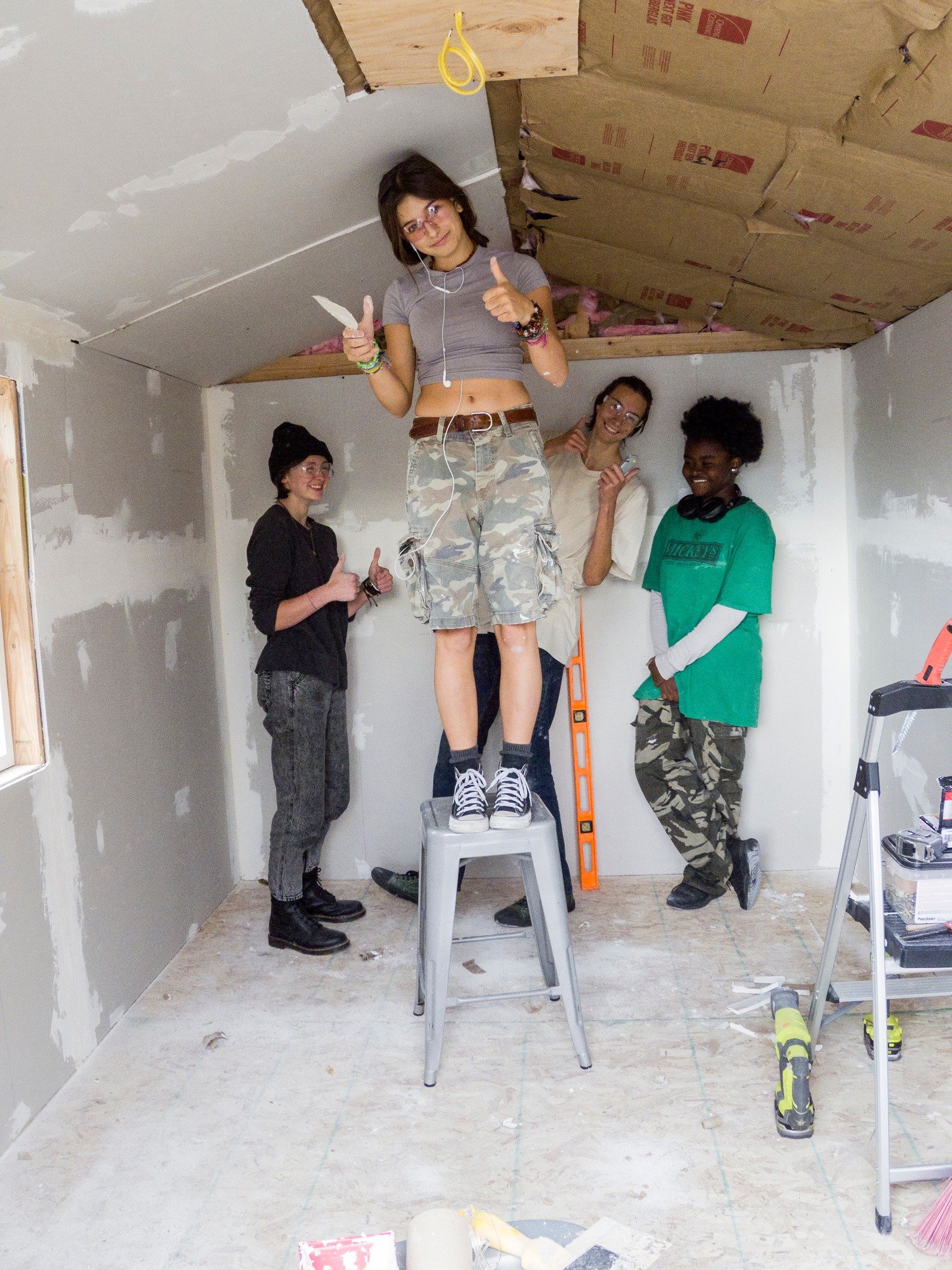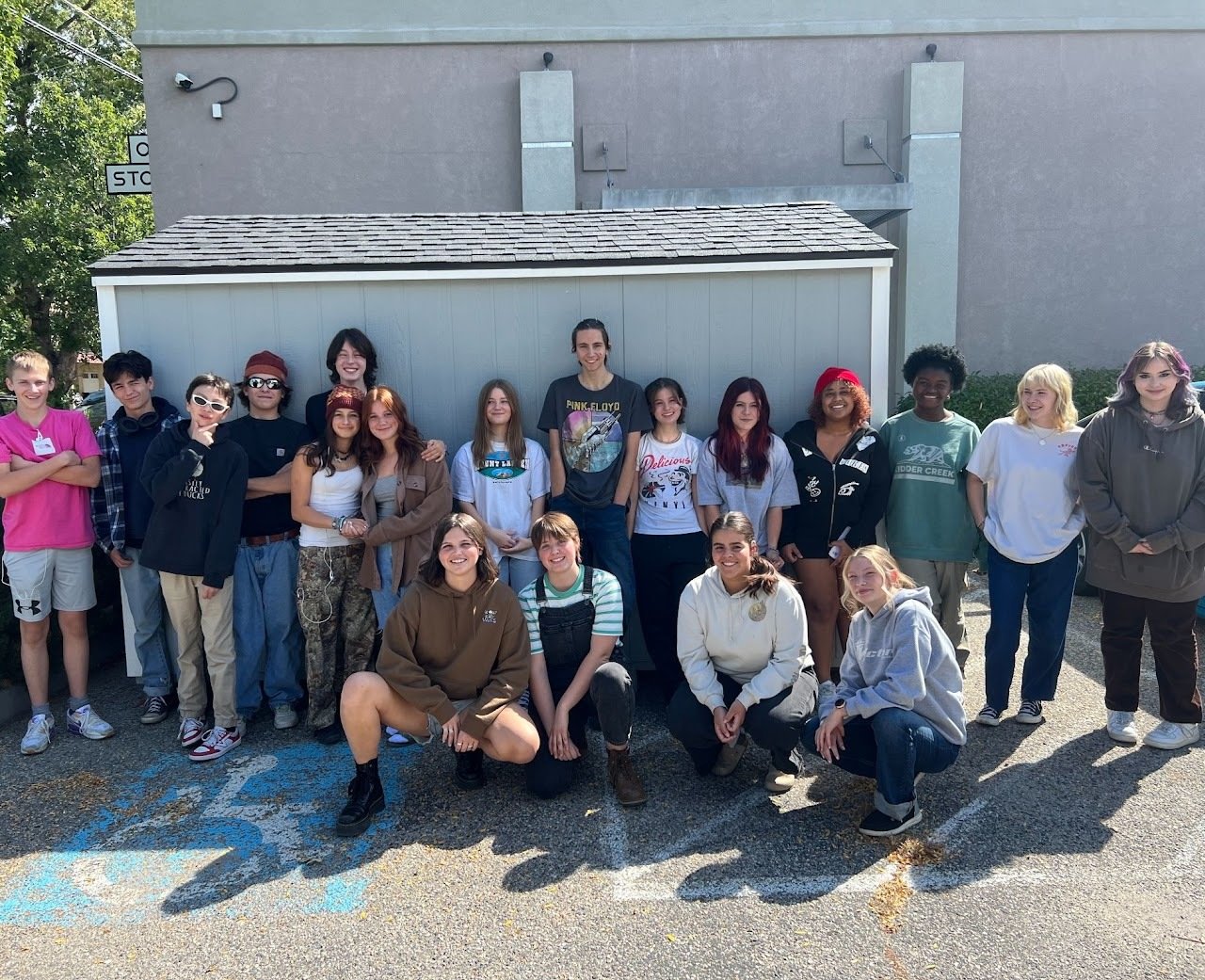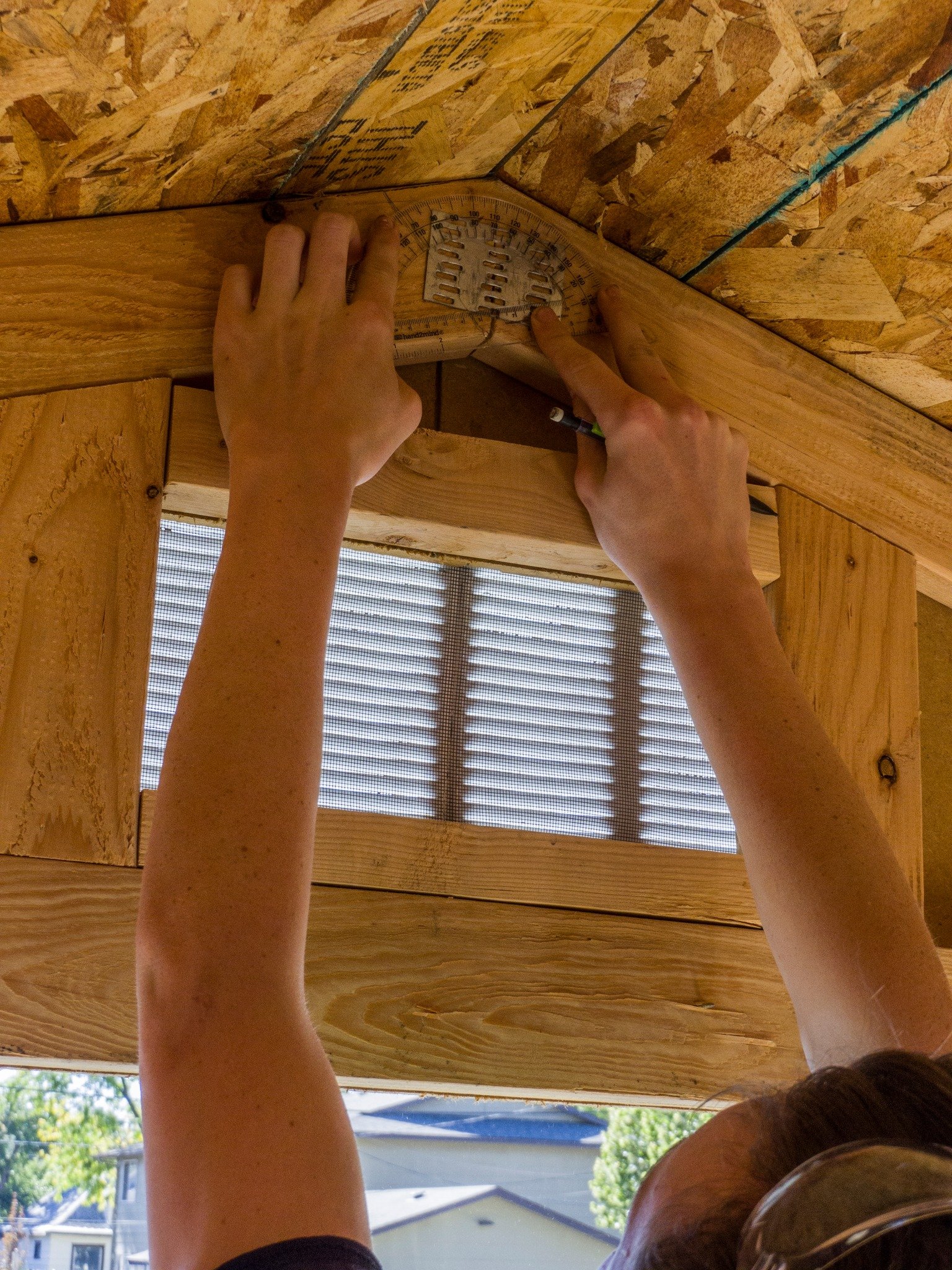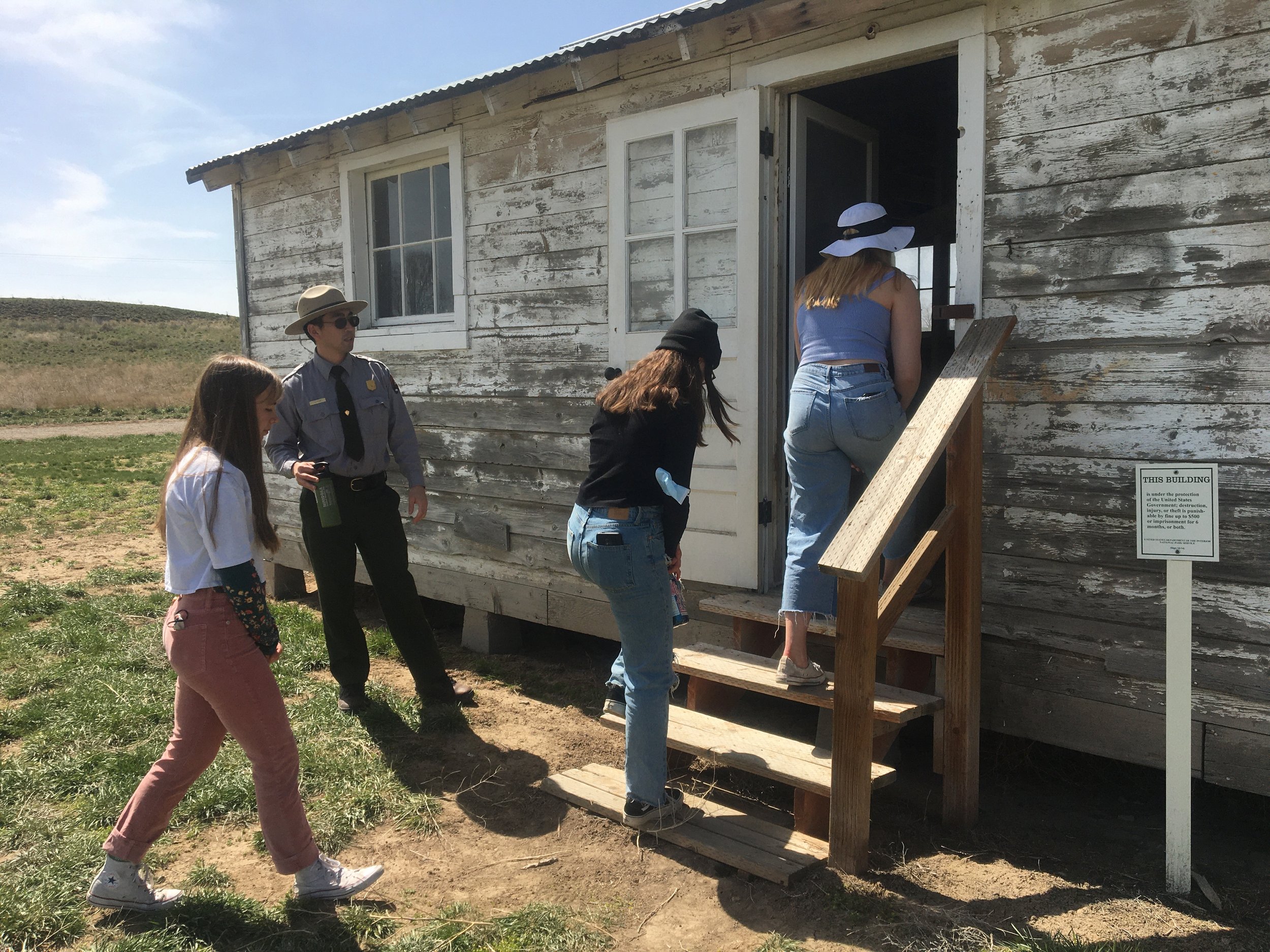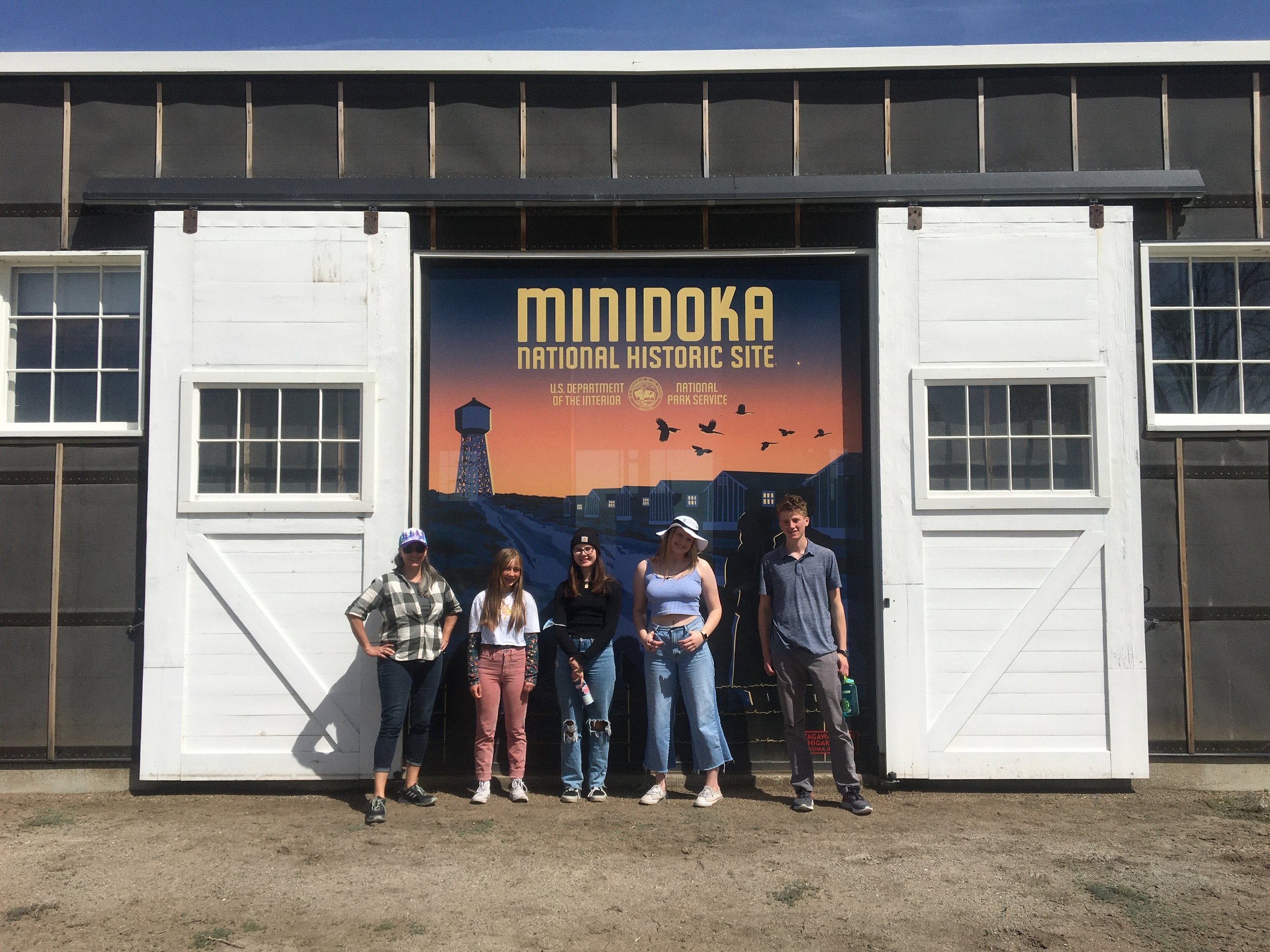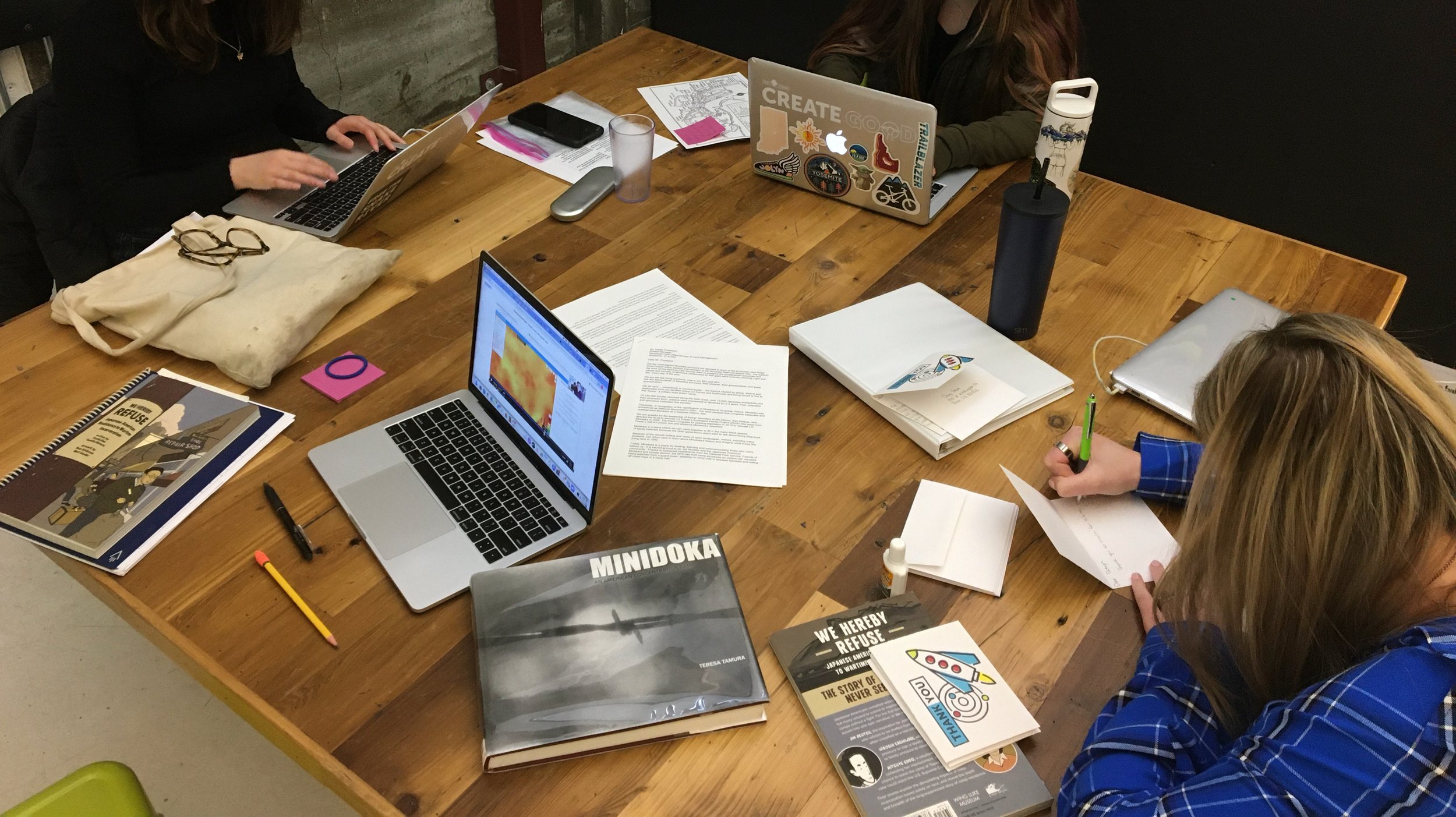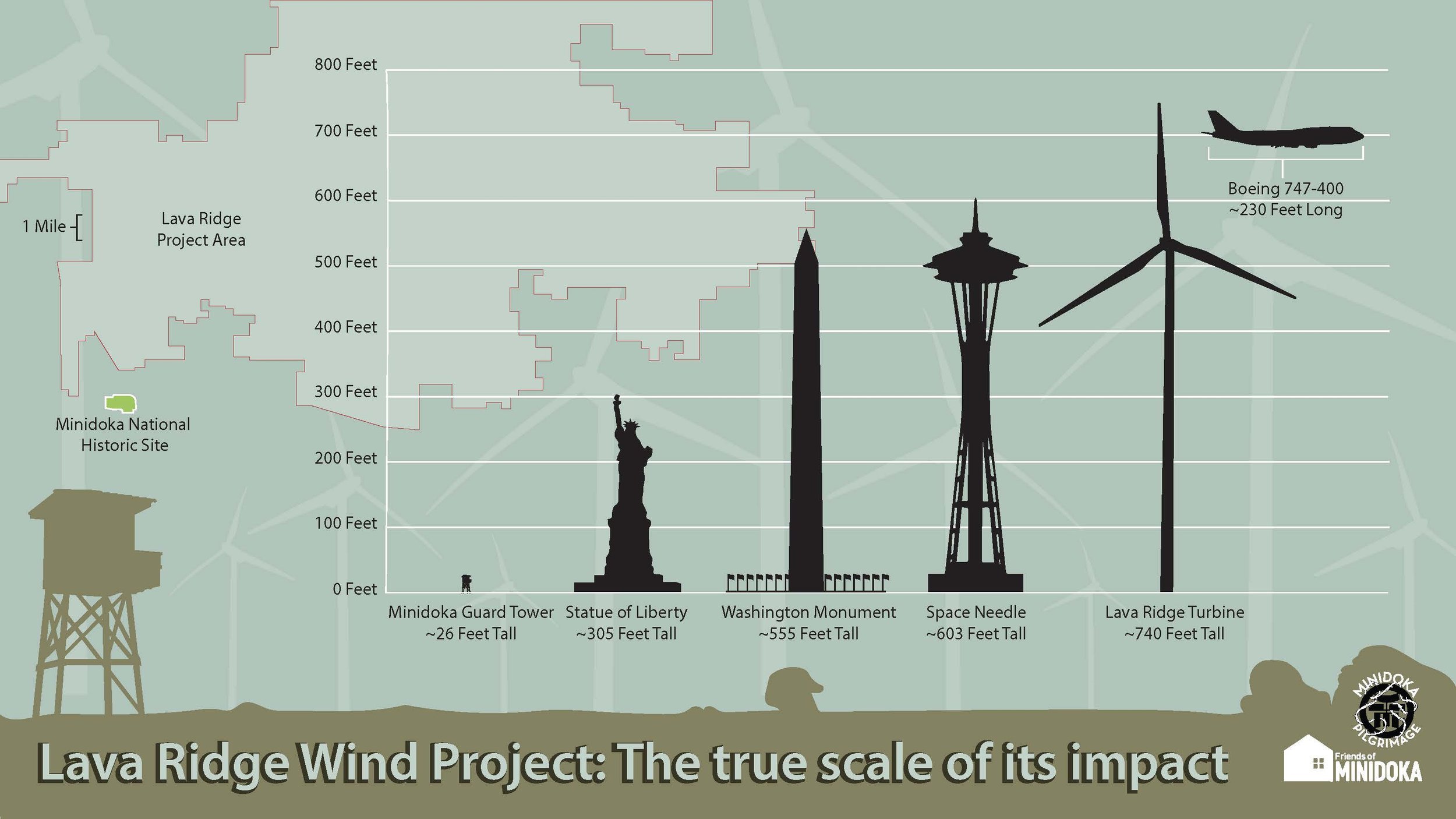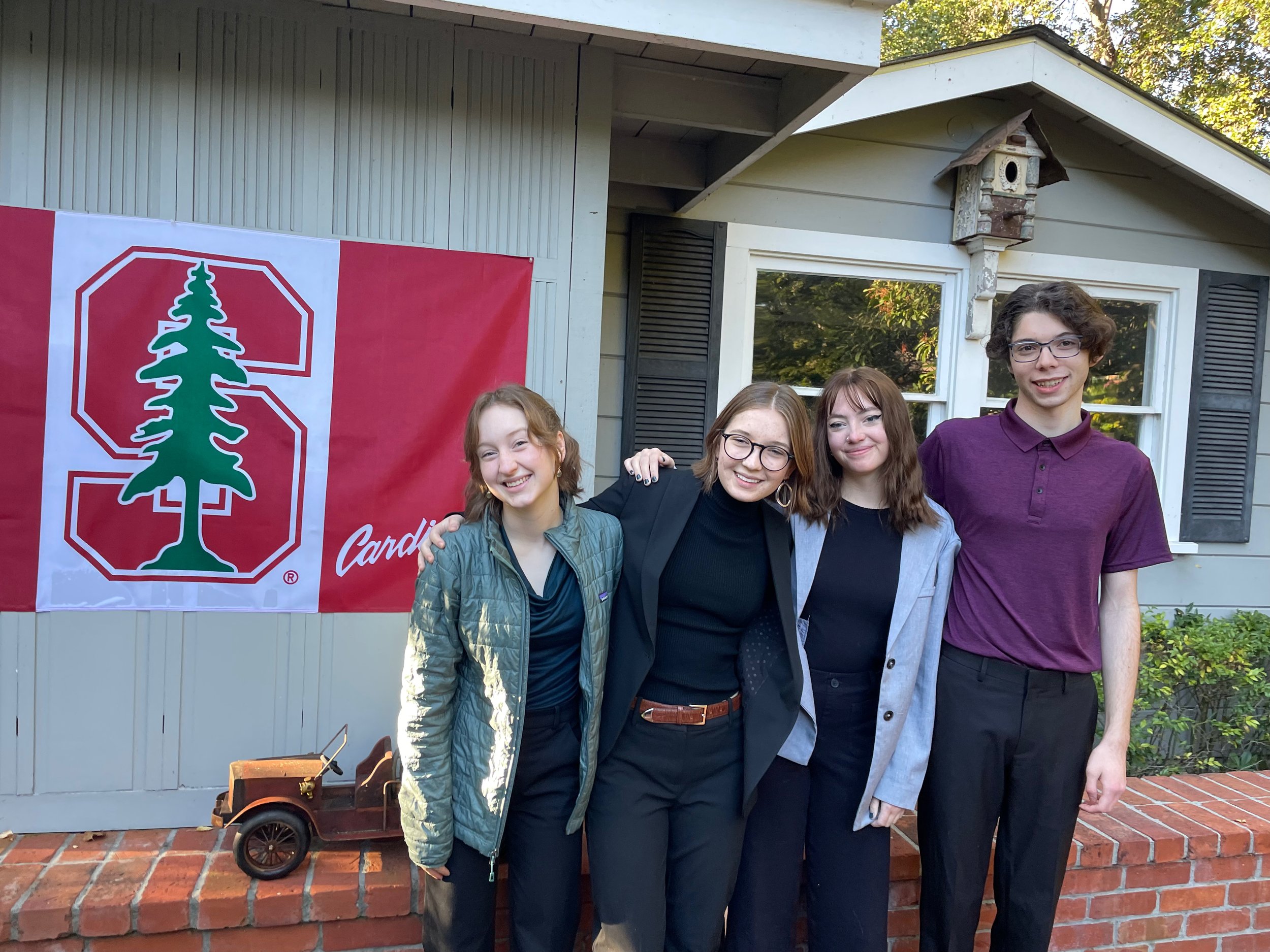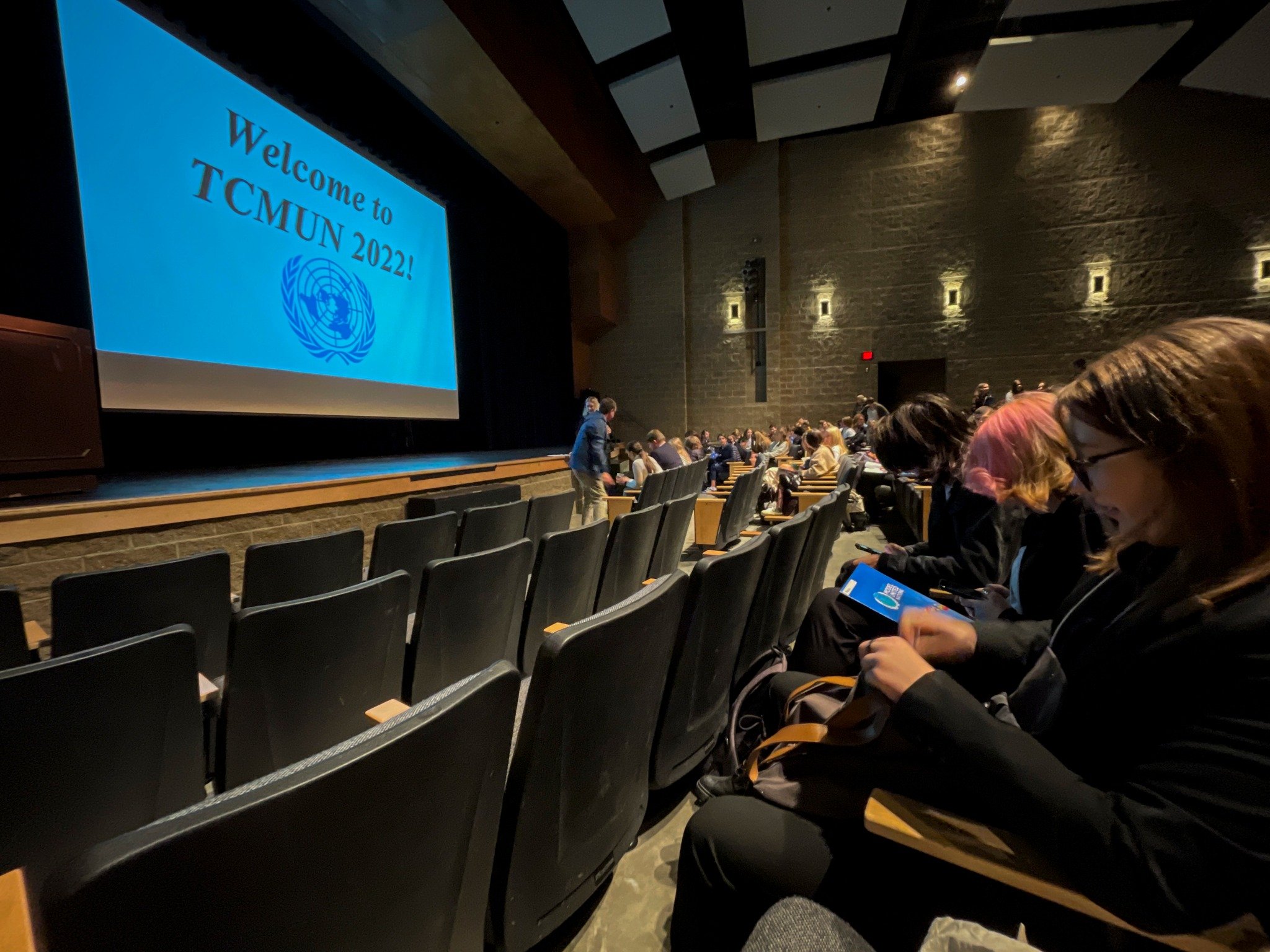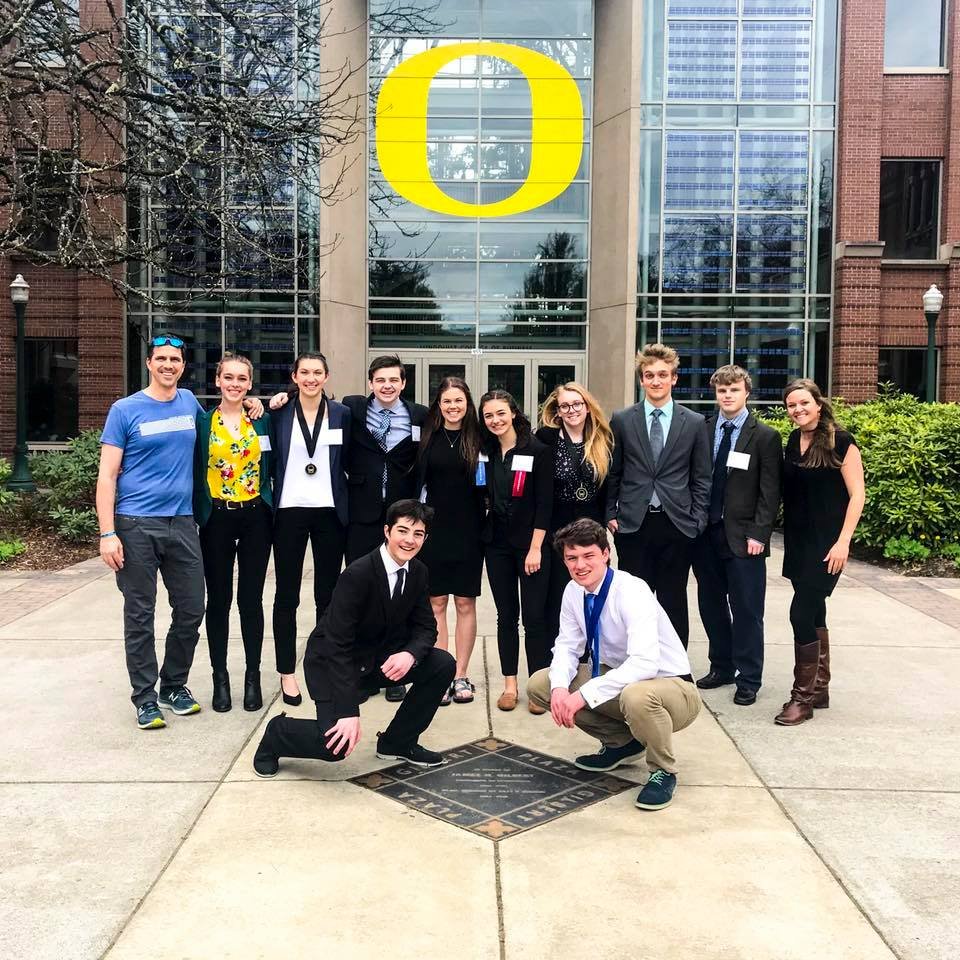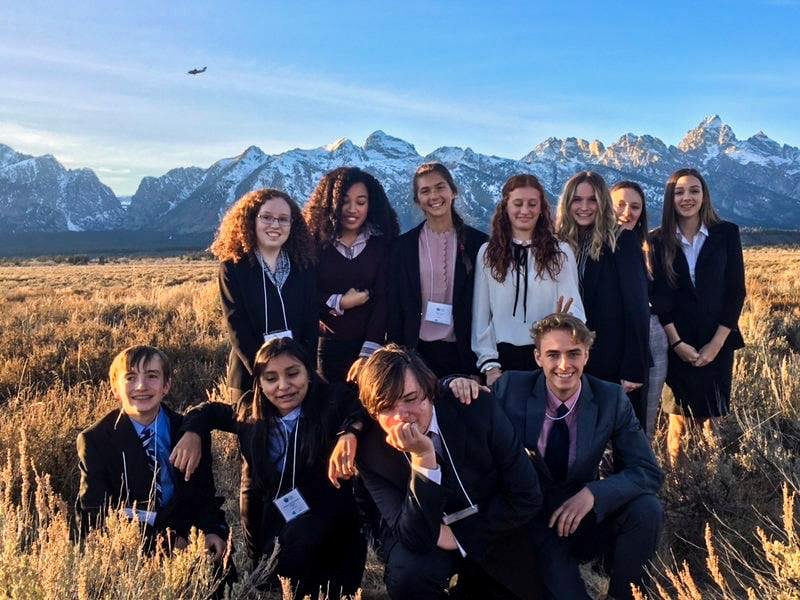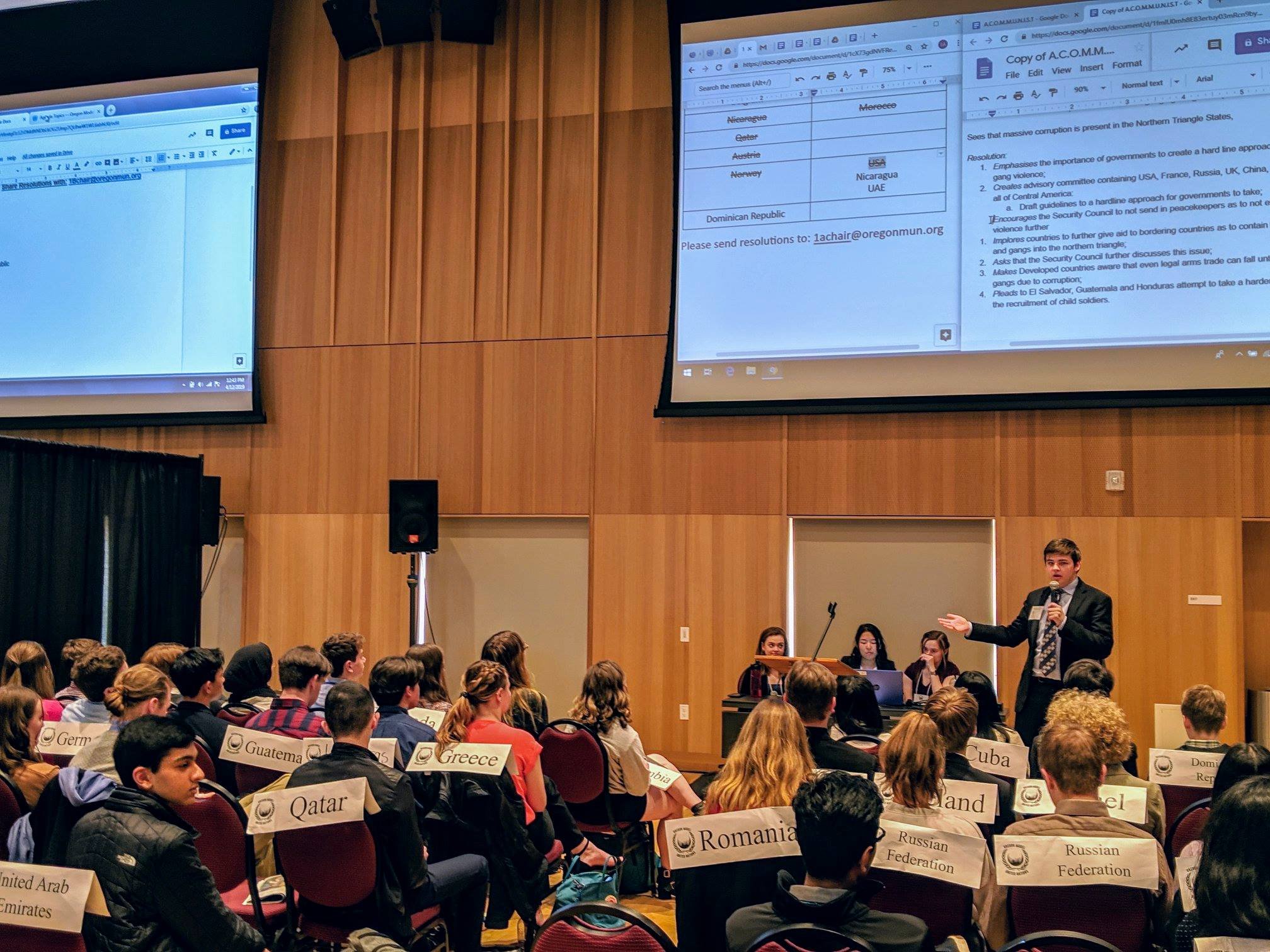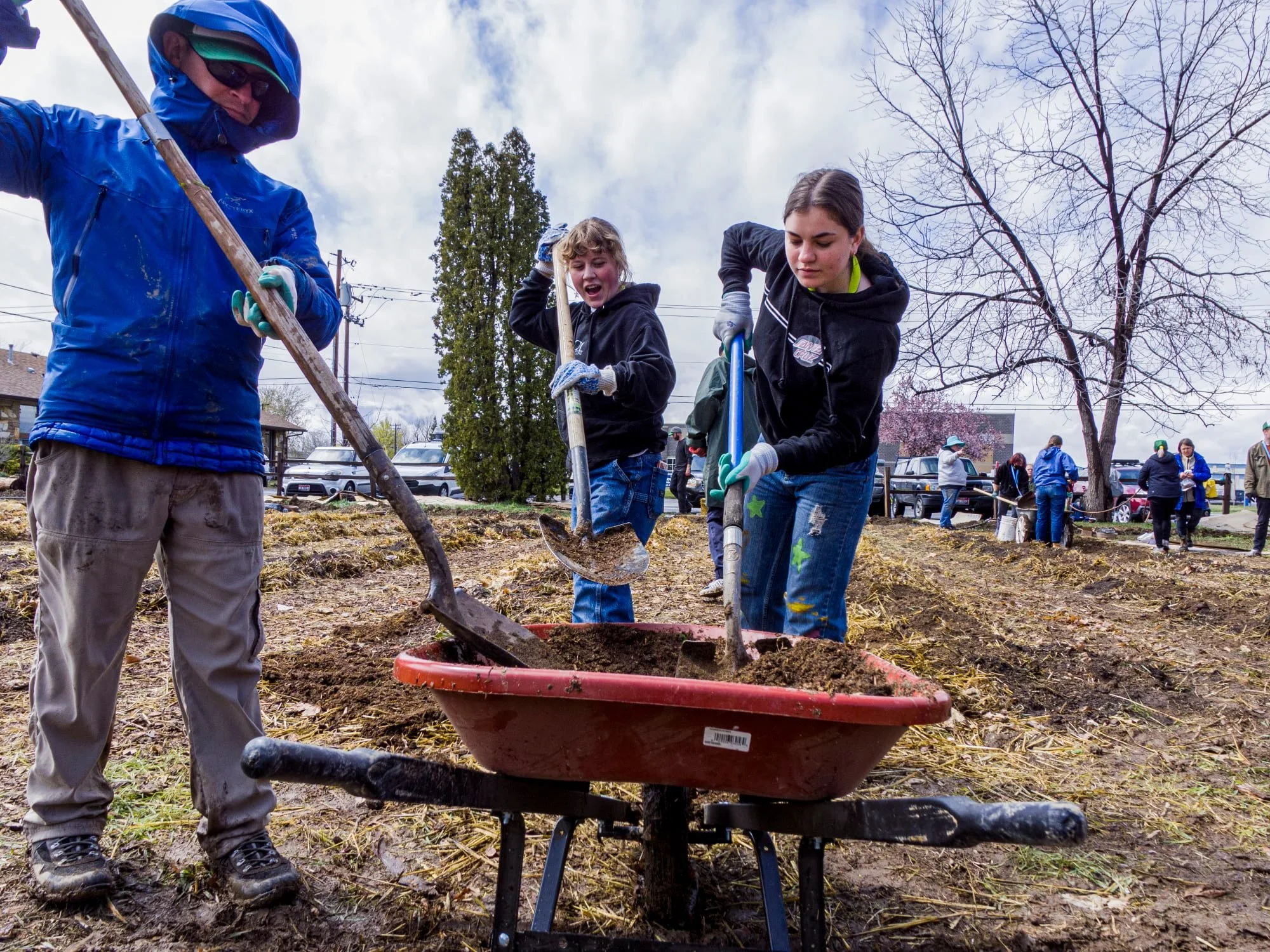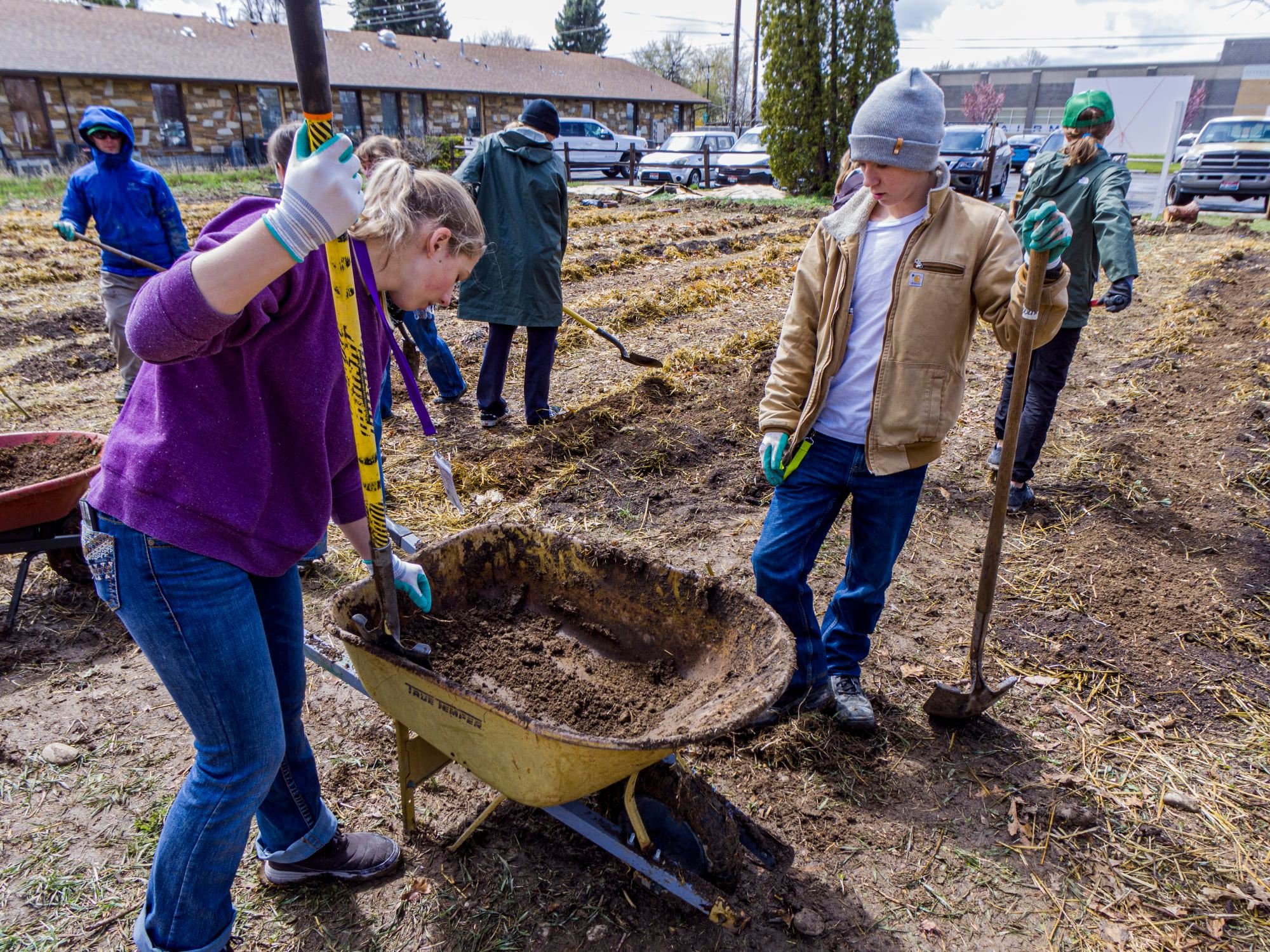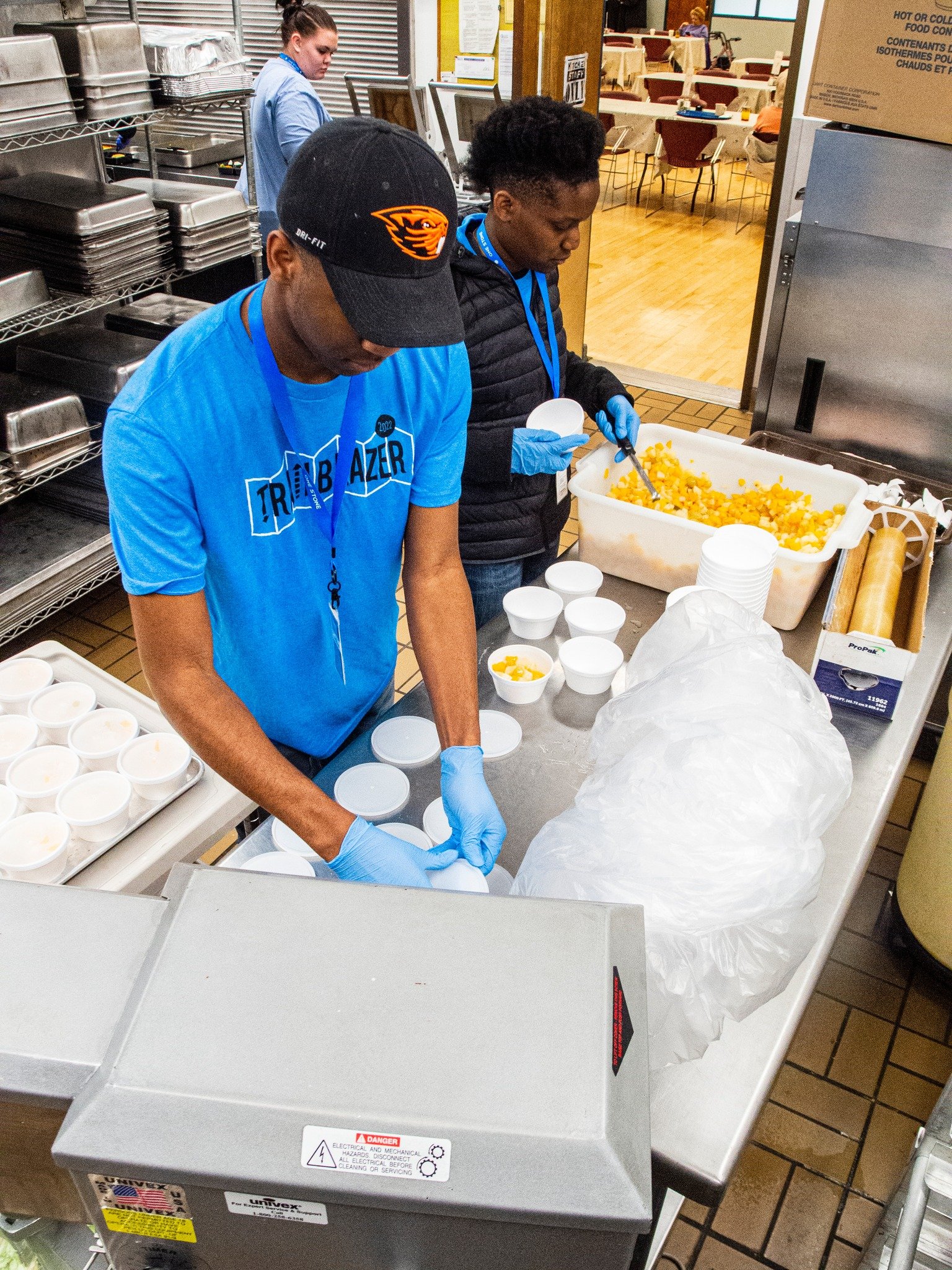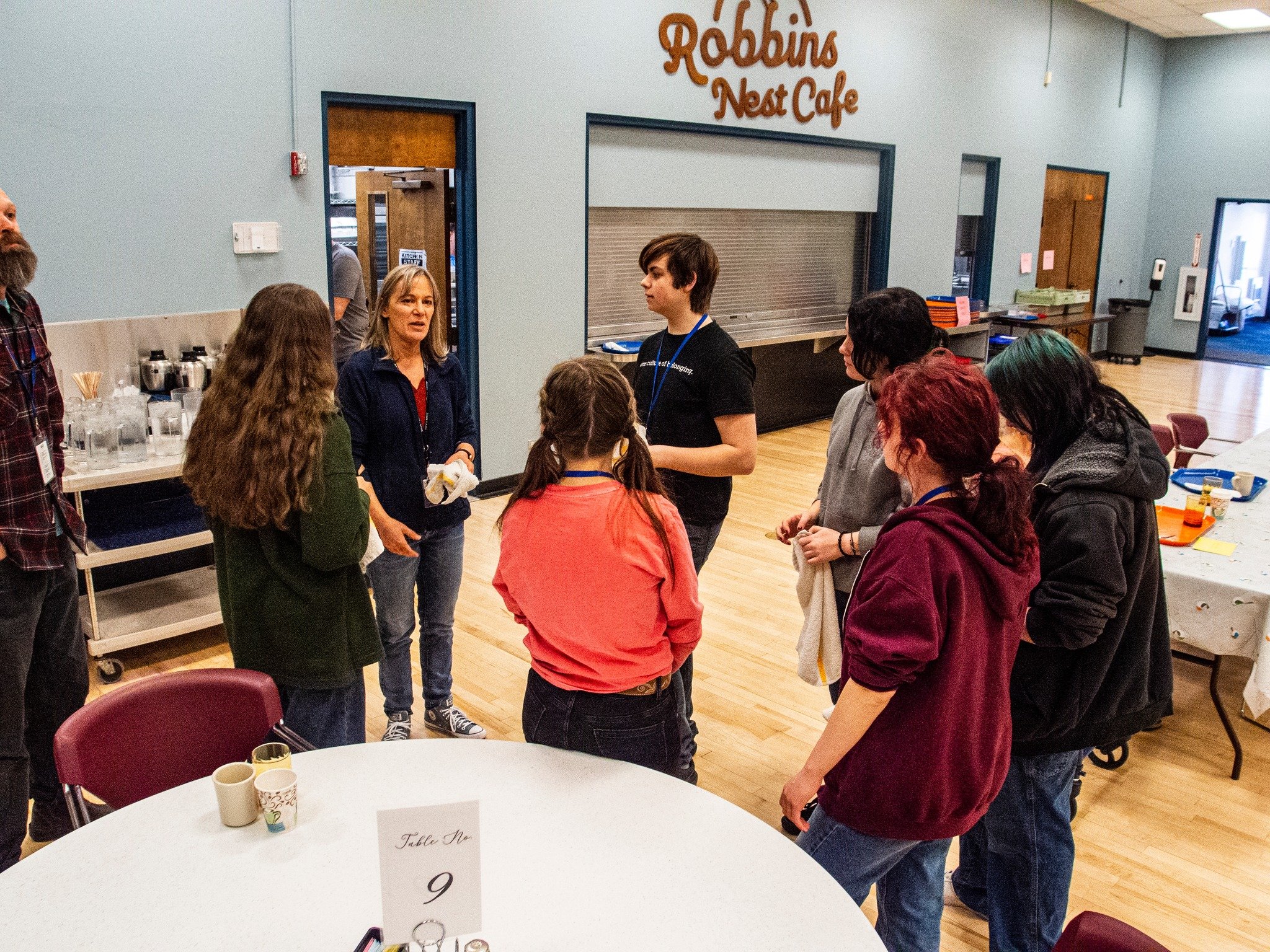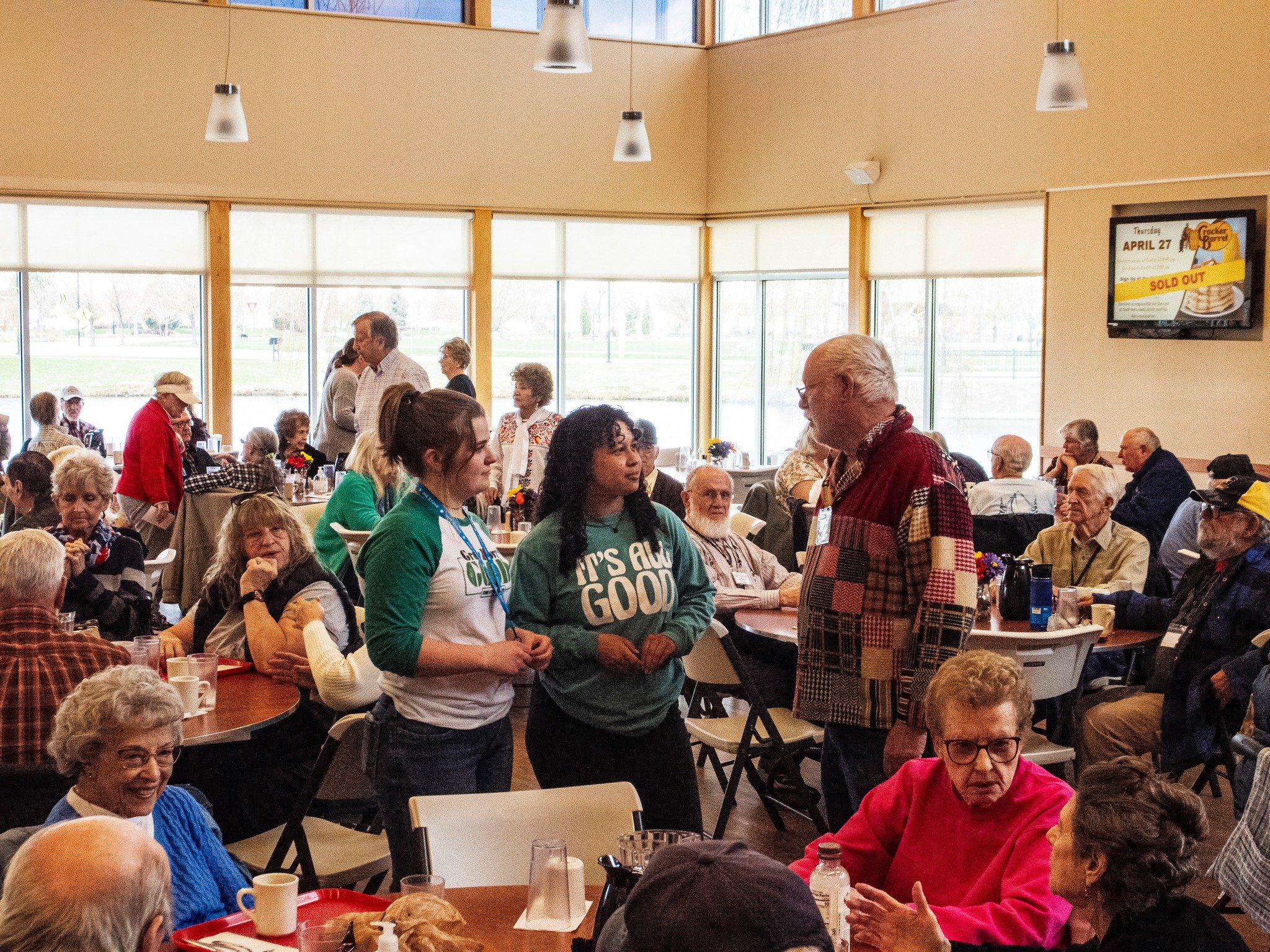The following selection of learning experiences at Lab51 provide a look into how students explore the world through vigorous and engaging learning alongside inspiring peers and adult coaches and mentors, as well as industry, academic, and community leaders and experts. Learning is highly personalized, collaborative, and driven by students. Many of these real-world, interdisciplinary learning opportunities were co-designed or co-coached by students. Students choose to engage in, and sometimes help lead, learning experiences that are relevant to them based on their personal goals, abilities, and curiosities. Students graduate from Lab51 with a well-balanced transcript complete with learning in the areas of English language arts, mathematics, science, social science, technology and engineering, design lab, and more.
XLab Human-Centered Design with the Idaho Steelheads & Idaho Central Arena
Coaches: Michael Reagan, Sam Johnson, Erin Nixon, and Emily Watkins
Topics: Design Thinking, Sports and Entertainment
Lab51’s newest cohort of design thinkers, XLab, partnered with the Idaho Steelheads and Idaho Central Arena for the 2023-24 design lab year. Throughout the fall, students explored several organizational opportunities and challenges ranging from the pre-game queue experience to noise and sound. In XLab, students learn the fundamentals of design thinking, a human-centered problem solving process designed at Stanford’s d.school, while working to solve organizational and community-based problems and opportunities. The goal is for students to build a deep understanding of complex, interdisciplinary, real-world issues, while working with a partner organization on relevant, long-term projects. The process requires primary and secondary research, observations, field work, and community engagement. Key design thinking activities included a tour of Idaho Central Arena; interviews with Idaho Steelheads season ticket holders; empathy mapping as a way to document and capture feelings attitudes, and beliefs; conducting observations at a Steelheads game; researching and writing a research essay on a related topic of choice; collaborating in several short design sprints in teams to define a specific problem and end-user, brainstorm ideas, prototype solutions, present solutions, and receive feedback.
Forensic Science
Coach: Erin Nixon
Topics: Science & Criminology
In this immersion, students explored forensic science and techniques, including fingerprinting, handwriting analysis, splatter pattern recognition, DNA analysis, tool patterns, and digital forensics. They investigated through multiple labs, practice crime scenes and cases, and from professionals in the industry. Presenters from Northwind IT and the Ada County Sheriff office discussed their work, current issues, and growths in their fields. Students in this experience practiced scientific inquiry, critical thinking, collaboration, and empathy. They worked in groups to create fake crime scenes, investigate crime scenes with the tools they learned, create a claim, and support it with evidence.
Creative Equation
Coach: Josie Derrick
Topics: Applied Mathematics & Digital Art
In this immersion, students learned to wield mathematical tools such as brushes and equations as palettes, unlocking their potential to craft visually stunning masterpieces. We primarily used Desmos and piecewise equations to recreate images and talked about how to create curves that fit desired shapes. Students also were exposed to the concept of fractals when we visited BSU’s Luminary and had Professor Michal Kopera speak to us, connections between math and music when Professor Ted Apel from BSU talked with our students, and truchet tiles and parametric equations when Professor Joe Champion visited us at One Stone. All students presented at least one art piece at BSU’s Luminary on our final day of the experience. In addition to these visits and guests, we had an artist, Dorota Pankowska, chat with us over Zoom to talk about her artistic process for a project called 13 animals, 13 circles.
From A to B
Coach: Sam Johnson
Topics: Engineering & History
Humans have always sought better ways to get from point A to point B. This immersion was a hands-on exploration of mobility and transportation through the ages. We explored this amazing topic through two lenses: part of our time was spent researching and learning about the innovations in mobility and transportation throughout human history. We collected these innovations in a giant timeline, stretching back from the dawn of human history, to innovations expected in the near future. The rest of our time was spent designing, engineering, and building Elixirmobiles, which were machines capable of transporting a crystal vessel (plastic cup) filled with precious elixir (dyed water) over a mountain pass (an obstacle-filled race course). Students got lots of hands-on Foundry time, and the experience deeply tested skills like ideation, iteration, and problems solving.
Theories of Light and Color
Coach: Dr. Leslie Atkins of Boise State University
Topics: Biology, Physics & Visual Art
In this experience, students examined phenomena related to light, including the camera obscura, lenses, eyes, and color phenomena, and designed their own investigations, models and representations to describe the physics and biology behind how we see what we see. Physics topics included modeling light as a wave, modeling light as a particle, reflection, refraction, lenses/focus, emission/absorption spectra, and their relationship to chemical structure. Biology topics included eye anatomy, rods and cones, and neurons. In addition to those main themes, students drew connections between the science of images and art. We visited an art exhibit with the camera obscura (Porous Images, by Dwaine Carver and Alex Carver), and critiqued a documentary on the role of optical devices in 17th century painting (Tim’s Vermeer). We read Isaac Newton’s original publication on light & color (A New Theory of Light & Color) from 1672. We explored color categories that differ from those in English (the Himba tribe of Namibia) in service of distinguishing between physical and cultural basis for color categories.
The Future of Healthcare
Coach: Celeste Bolin, Ph.D.
Topics: Medical Science & Human Health
This experience invited students to engage in a high level of scientific inquiry and willingness to hone information literacy and problem solving skills. The group quickly identified four major areas of innovations in healthcare that they were most interested in exploring: sleep, mental health, physical health, and diet. We explored how these topics were portrayed in social media and what products and services were currently marketed for human health issues in each. We also spent time exploring a meta report on the largest issues and interests of Gen Z. Real-world learning featured site visits, expert healthcare visitors, a tour of the Veterans Administration Hospital, and interviews with a local physician assistant and a holistic healthcare worker. Students committed to exploring how genetics principles might inform modern medicine and brushing up on both Mendelian genetics, as well as introductory college level non-Mendelian genetics principles such as epistasis and codominance. We used chapters from the text “Medical Apartheid” by Harriet A. Washington to give us a jumping off point for discussions on historical ethical dilemmas in healthcare access and priority, as well as current questions. The experience culminated in each student presenting a novel innovation in healthcare in an area they were curious or passionate about to a panel of four healthcare experts including two physician’s assistants, a registered nurse, and a doctor of naturopathic medicine.
What’s Mine is Ours
Coaches: Teal Gardner and Allison Fowle
Topics: Environmental Science, Economics, Government & Visual Art
In the immersion, ‘What’s Mine Is Ours,' learners engaged in an in-depth exploration of the issues around the Stibnite Mine, a proposed project by Midas Gold to re-open an abandoned open-pit mine in Yellow Pine, Idaho. This experience included a trip to the Yellow Pine area during the Deep Dive week. During the Deep Dive component of this experience, students spent 4 days and 3 nights camping, visiting the mine site, and developing a connection to the South Fork Salmon River watershed. The complex issues surrounding the mine were examined through the lenses of politics, ecology, economics, visual arts, literature, journalism, and history. Students engaged with the issue by developing individual guiding questions and each emerged with a deep, personal understanding of the issue, having worked with the many perspectives that comprise the issue. The experience concluded with a public art show at the MING Studios Gallery, in which each student showed a personal response to the mine.
Planning Your Dream House
Coaches: Josie Derrick, Sam Johnson, and Reggie Mace
Topics: Math, Architecture & Construction
This multifaceted experience explored what it takes to build your dream house from three different angles. One piece of the puzzle involved learning about designing structures on paper and/or using digital tools. Another piece is mathematics skills in the context of trades and construction projects. Finally, students formed groups, and took on the roles of subcontractors working on a larger construction project of renovating a donated shed into a more useful studio space, complete with electrical, insulation, and interior finishing.
Weaver’s Paradise
Coach: Teal Gardner
Topics: Botany, Art & World History
Students in this six-week weaving intensive built looms, dyed wool and fabric, and wove tapestries both on and off loom, while building context for these activities by learning about textile traditions from various global weaving cultures. Students also explored botany by working with natural dye materials and processes, to gain knowledge and hands-on understanding of how natural pigments work.
Wilderness Medicine and Leadership
Coaches: Allison Fowle & Mat Erpelding
Topics: Leadership, Biology & Medical Science
This immersion consisted of three main components: exploring and building the skills needed to be an effective leader; an overnight camping trip focused on Leave No Trace (LNT) outdoor ethics; and an intensive Wilderness First Aid (WFA) course that included both online and hands-on learning. Students completed this immersion with an official WFA certification through the Wilderness Medicine Training Center, as well as an official LNT certification through the Center for Outdoor Ethics. Along the way, each student worked to develop and articulate their personal leadership style. This immersion pushed students to demonstrate high levels of grit, critical thinking, altruism, collaboration, scientific inquiry, critical reading, management, ownership, and leadership.
Two Birds – Storytelling through Filmmaking
Coach: Becca Metzgar
Topics: Writing, Video Production, Marketing, Hospitality & Agribusiness
In Storytelling through Filmmaking, a Two Birds learning experience, students explored their curiosity or passion for storytelling by turning a creative vision into a finished production. Students had the opportunity to write and develop storyboards, act, interview, direct, shoot, edit, and engage throughout the production process to create a final product. The team learned about the art of filmmaking, both documentary and narrative, and worked to produce short-films. Students who had never used professional camera equipment, produced a high-quality short film for our Two Birds clients at FARE Idaho. The video featured an interview with a board member, who outlined the important role FARE Idaho plays advocating for Idaho’s independent restaurants, family farms, retailers, food and beverage producers.
Blowing in the Wind: Japanese American Incarceration and the Future of Power in Idaho
Coach: Shannon Reagan
Topics: American History, Government & Energy Policy
In this deep dive, a small group of students worked to understand a complex proposal to build the nation’s largest wind power station on the historic footprint of the Minidoka National Historic Site, a remote location in rural Idaho where 13,000 Japanese Americans were incarcerated during World War II. If built, the proposed Lava Ridge Wind Project would be Idaho’s largest and occupy 76,000 acres of BLM land immediately adjacent to the current memorial. This was a complex experience that required students to develop a working knowledge of the basics of wind energy and the green power industry, while researching one of the worst violations of human rights in American history. We toured the historic site and spoke with a wide range of stakeholders on the issue, including engineers, historians, Minidoka survivors, and their descendants. After understanding the issue from all sides, students wrote letters to Idaho’s U.S. Representatives to express their opinions about the proposal. At the conclusion of the learning experience, one student opted to spend the next three months writing a script and score for a musical based upon the experiences of Minidoka incarcerees.
Navigating the Math Web
Coaches: Josie Derrick, John Brassey, and Jun Campion
Topics: Applied Mathematics
Regular math workshops allow students to navigate Lab51’s innovative Math Web with voice, choice, and ownership over their math journey. Topics range in complexity and ability, including Number and Quantity, Algebra, Functions, Geometry, Statistics and Probability, Calculus, and AP® Calculus. Every term, math workshops provide students with consistent opportunities to work closely with a math coach in small groups (typically 4-12 students). Workshops are broken up into sprints of approximately four weeks each, which allow extra flexibility in learning and opportunities to change math paths throughout the term. In addition to regular workshops, students can navigate the Math Web through a variety of interdisciplinary learning experiences that combine math with data science, art, music, game development, and coding.
MindFULL
Coach: Celeste Bolin, Ph.D.
Topic: Mental Health
The MindFULL Immersion spent three weeks deeply investigating mindful practices such as goal-setting, yoga, meditation, journaling, and breathing exercises. We read and discussed “The Four Agreements” by Don Miguel Ruiz, as well as excerpts from “The Mastery of Love” by Don Miguel Ruiz, Jr. We also watched and discussed talks delivered by several high-impact thinkers in the areas of goal setting and optimizing human potential including Adam Grant, James Clear, Dr. Richard Davidson, Dr. Jill Bolte Taylor, Brene Brown, Kristen Rivas, and Marisa Peer. We discussed topics ranging from the neurobiology of consciousness, vulnerability, how to create effective habits, and the power of positive psychology practices. Students were challenged to set daily goals for the three weeks that were supporting their practice of being mindful and track their progress on those goals. We also had a master yoga teacher and transpersonal psychologist, Marisa Weppner, visit the group for a yoga and mediation session. This was an experience with opportunity for growth in several areas including critical reading, reflection, desire to grow, vulnerability, and ownership.
Model UN
Coach: Emily Watkins
Topics: Government & International Studies
Model UN regularly provides curious students with opportunities to practice research, debate, and resolution writing. Often student-led and coach-supported, Model UN provides real-world relevant ways for students to learn parliamentary procedure, write position papers, participate in mock conferences, and compete in regional conferences with students across the west. Trips have included visits to University of Oregon, University of Wyoming, and Jackson Hole. In the fall of 2023, Model UN competed at Stanford University. In addition to their Model UN activities, students toured the Stanford campus, engaged in a conversation with a former employee of IDEO, and met with a former UX designer at Google.
Automate It!
Coach: Josie Derrick
Topics: Coding, Robotics & Electronics
In this experience, students were introduced to basic electronics and applied logic though coding. To explore electronics operations and applied logic, we used Arduinos to design, create, and automate objects of interest (e.g., battery operated trains, radio controlled cars, food freshness sensor, etc.). Arduino is a small computer that is used to create interactive projects with hardware and software. In addition to coding, students explored both the theoretical and practical understanding of how to connect electronics through soldering and wiring.
Hatch It!
Coach: Ashlee Greenwood
Topics: Entrepreneurship & Branding
Hatch is One Stone’s student idea incubator and a place to test and try out entrepreneurial ideas and solutions. During Hatch It!, students shared ideas, formed collaborative teams, and participated in a variety of opportunities to share their Hatch Ventures. Students worked through portions of the business model canvas and validated their ideas through customer interviews. All teams also received support and feedback from business leaders and coaches to help them prototype and brainstorm branding ideas for their ventures. Students engaged in a “Shark Tank” style pitch competition to win a chance to compete at the Idaho High School Entrepreneurship Challenge.
Protest!
Coach: Jun Campion
Topics: Art, History, Politics & Environmental Activism
Students chose to research a specific song, movement, time period, or artist connected to a protest movement – either current or historical. Students consolidated their research into a podcast, presentation, performance, or research paper. As a group, we discussed the intersection of music, politics, human rights, and environmental activism and how protest has been prevalent in cultures throughout history. In this experience students will develop and practice curiosity, research, critical thinking, iteration, ownership, writing, and communication skills.
Do Good Days
Coaches: Ashlee Greenwood, Teresa Poppen
Topics: Multidisciplinary, Experiential Service
Do Good Day is an annual Lab51 tradition designed to give our One Stone community (students and staff) an opportunity to practice empathy and engage with local organizations working to do good in the greater Boise area. Over the years, Do Good Day has designed and executed a hundreds of experiential service projects ranging from gardening, river clean up, random acts of kindness, creating a free produce market, and more. In 2023, Do Good Day was a two day event with a panel of guests from Catch, Jesse Tree and LEAP Housing, where we learned about the issue of economic insecurity and its many forms ranging from hunger to housing to healthcare. We deployed teams of students and staff at nonprofits across the Treasure Valley getting our hands dirty with a variety of service projects, while learning first hand about some of the Treasure Valley’s most vulnerable populations.
